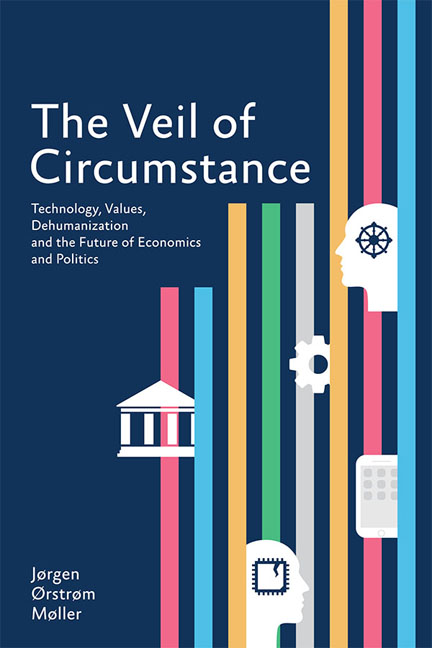 The Veil of Circumstance
The Veil of Circumstance 9 - Human Behaviour
from III - ECONOMICS
Published online by Cambridge University Press: 19 May 2017
Summary
Economics is a social science and the social sciences are about humans and human behaviour. Studies conducted in the other social sciences make it clear that humans behave very differently than the way economics assumes. The gene structure favours an altruistic attitude — not egoism. People tend to form groups, seeing this to be the best chance of survival. They cooperate with each other inside the groups and tend to rally against out-groups, whom they often see as a threat. The relations inside groups and among the members may be governed by three types of socio-economic patterns: a market economy, a tributary economy, and a kin-oriented system. Parts of all three patterns are found in most societies all over the world. How they interact with each other may differ from place to place. Human behaviour is not the same irrespective of background, religion, nature and upbringing (culture in a broad sense). On the contrary, different people will respond differently to similar questions, particularly in relation to other human beings, depending on exactly those cultural elements. It would seem that much of the social sciences themselves, and particularly economics, falls into this category — being based on studies by people and of people with a Western background, and with diminishing validity as it is applied beyond that base.
On the evidence of the other social sciences and recent brain research, it is quite clear that human beings are not the Homo oeconomciusof economic myth and that the pursuit of happiness is not inextricably linked to money. Fulfilment or “happiness” are deeper and longer-lasting feelings than those derived from material consumption — primarily because they bring in the human factor, and let human beings see and feel that they do something for others.
Aaker et al. (2011) conclude that, “To get maximum happiness out of time, people need to use it in ways that cultivate personal meaning and social connections. Although the time spent strengthening your relationships with friends and family is likely to bring the greatest happiness, it is also possible to derive pleasure from 1) spending time with people not typically associated with happiness (e.g., workplace friends)…
- Type
- Chapter
- Information
- The Veil of CircumstanceTechnology, Values, Dehumanization and the Future of Economics and Politics, pp. 216 - 229Publisher: ISEAS–Yusof Ishak InstitutePrint publication year: 2016
